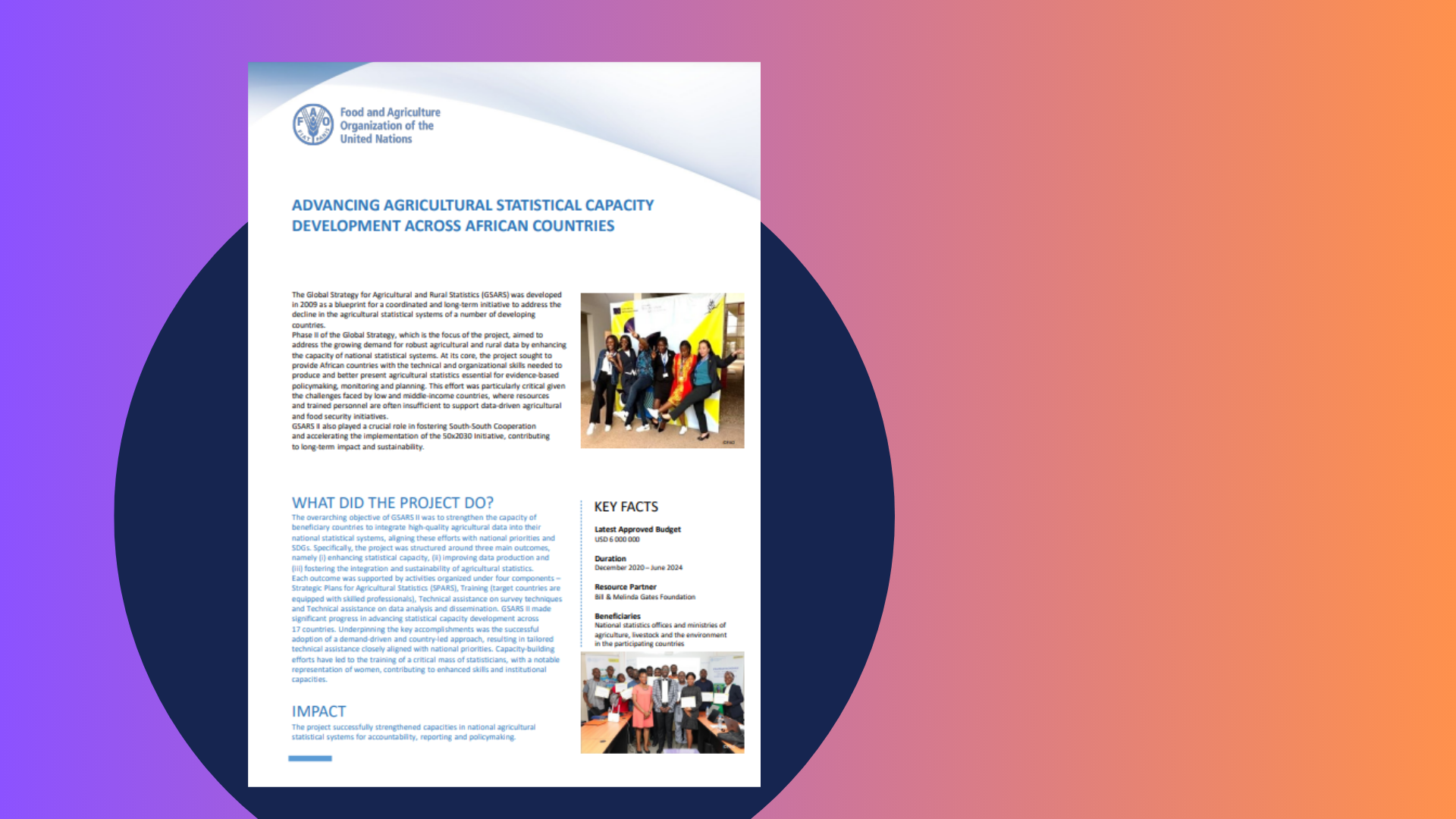Project brief for the Global Strategy for Agricultural and Rural Statistics (GSARS), which aimed to strengthen capacity of agricultural statistical systems in developing countries.

The Global Strategy for Agricultural and Rural Statistics (GSARS) was developed in 2009 as a blueprint for a coordinated and long-term initiative to address the decline in the agricultural statistical systems of a number of developing countries. Phase II of the Global Strategy, which is the focus of the project, aimed to address the growing demand for robust agricultural and rural data by enhancing the capacity of national statistical systems. At its core, the project sought to provide African countries with the technical and organizational skills needed to produce and better present agricultural statistics essential for evidence-based policymaking, monitoring and planning. This effort was particularly critical given the challenges faced by low and middle-income countries, where resources and trained personnel are often insufficient to support data-driven agricultural and food security initiatives. GSARS II also played a crucial role in fostering South-South Cooperation and accelerating the implementation of the 50×2030 Initiative, contributing to long-term impact and sustainability.












































































































































































































